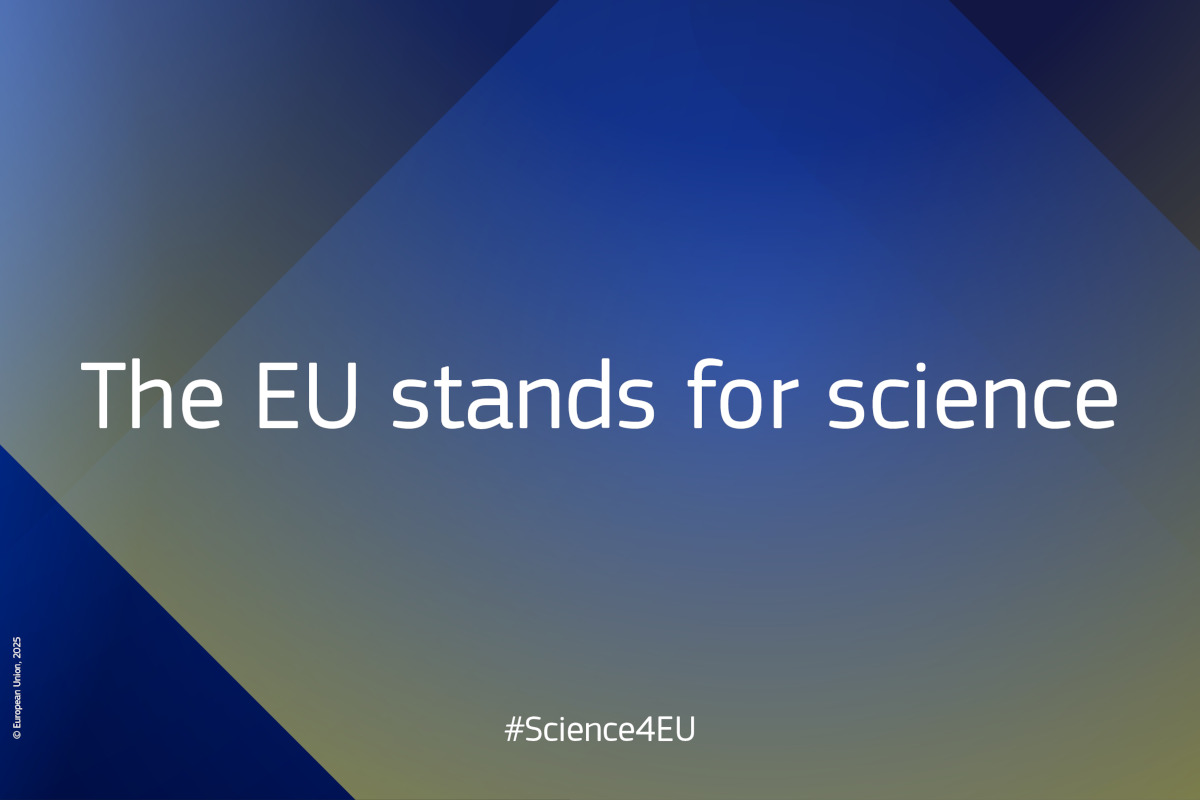While Europe’s green agenda faces new pressures, sustainability leader Sandrine Dixson-Declève outlines why sustainable investment remains vital for economic strength, planetary health and future resilience.
Special series

Science4EU
The Science4EU campaign shows how the EU stands for science. It shines a spotlight on the scientists, researchers, and innovators working with EU support to improve our lives and shape a better future for everyone.
Do you also stand for science?
More stories
Most popular
-
1By Andrew Dunne
-
2By Tom Cassauwers
-
3
-
4
-
5By Michaela Nesvarova
Top videos
Rethinking green investment for Europe’s next chapter: a stakeholder’s vision
23 June 2025
Smarter science: staying one step ahead of the next pandemic
18 June 2025
Past articles
European scientists are preparing to launch a satellite no bigger than an office refrigerator that can map the entire Earth every two days.
If the type of patents being filed by Europe’s companies is anything to go by, the economy that will emerge from the financial crisis in Europe may be decidedly green.
Researchers have developed a less damaging alternative to traditional cleaning methods for historic artefacts – the plasma torch.
Shattered glass. Howling car alarms. Buildings evacuated. On 15 February 2013, the city of Chelyabinsk in the Urals region of Russia felt the full force of a shockwave caused by an unexpected fireball exploding some 15-20 km above it. As the lump of space rock burned up in the sky above the city, windows were blown out and local buildings shook. Hundreds were left injured.
Dr Geneviève Almouzni is Deputy Director of the Institut Curie in Paris, France. She is the laureate of the 2013 FEBS | EMBO Women in Science Award, a joint initiative of the Federation of European Biochemical Societies (FEBS) and the European Molecular Biology Organisation (EMBO). Launched in 2007, the aim of the award is to highlight the major contributions made by female scientists to life sciences research. We asked Dr Almouzni what she thinks about such awards specifically dedicated to female scientists.
The Ottoman mansion of Hassan Bey in the seismically active medieval centre of Rhodes, Greece, does not worry civil engineers – even though the building is faulty because its floor isn’t very well connected to the wall.
‘It’s in your genes!’ How often have you been reminded by friends or relatives that you look the way you do because of the genetic code stored in your DNA? But next time you hear this expression used, you might stop to wonder what else could be stored in those genes.
Máire Geoghegan-Quinn, Commissioner for Research, Innovation and Science, urges global collaboration to stop the epidemic. Diabetes currently affects more than 350 million people around the world.
After the discovery of the so-called ‘God particle’, scientists could turn the world's biggest particle accelerator to uncovering dark matter, or even shedding light on parallel universes.
Doctors should routinely test people’s feet to check for diabetes, that’s according to a former UK Health Minister and MEP who has become a campaigner for the disease after being diagnosed with it himself.
Drivers may soon be able to take their hands off the wheel and their eyes off the road in their own cars, leaving the driving to modern technology. That is the conclusion drawn by the partners of the SARTRE project, after recent successful testing of road train ‘platooning’ in Sweden. However, more human barriers remain to be lifted before it could become commonplace.
Grants should only be given to research organisations who have received an award for female-friendly policies, according to a UK scientist who was overlooked for a Nobel Prize on pulsars even though she did much of the work.
Marisa Matias is a Portuguese MEP of the European United Left / Nordic Green Left group (GUE/NGL). A social scientist by training, she is very active in the areas of public health, science and research. Why should science be calling out for women? She believes it will help tackle Europe’s brain drain. ‘It will help jugulate the brain drain Europe is suffering and boost gender equality,’ she says.
For scientists, packing up their lab coats and microscopes and heading to foreign laboratories can really pay dividends. Thanks to initiatives like Marie Skłodowska-Curie Fellowships, women are benefiting more and more from making a move abroad.
An experimental tablet treatment for child diabetes, where youngsters have traditionally had to inject themselves with sugar controlling insulin, could end up eradicating the disease altogether, according to the scientist leading the European NAIMIT project.
Professor Christian Keysers first saw the film Dr. No as a teenager. Watching the scene where James Bond wakes up to discover a large, hairy, poisonous spider crawling up his arm, he thought he could almost feel the spider on his own skin.
Economist and author Mariana Mazzucato argues that for innovation to flourish in Europe, its governments must become more entrepreneurial and invest in technologies that private investors consider too risky.
Across the Atlantic, scientists are also making use of open access journals. In Canada, the national medical association started publishing a totally new, fully ‘open’ journal in January.
While more and more women are reaching senior levels in science and engineering, the aspiration of reaching gender equality is not yet fulfilled. Data from the She Figures 2012 report, a major EU publication that presents Europe-wide data on women in science from tertiary education through to the job market, show that there are nowhere near enough women at the top levels of science and research.
Diabetes is on the rise all around the world. In the EU alone, there are 33 million people diagnosed with diabetes. They include people of all ages and from all walks of life. The two main forms are insulin-dependent Type-1 diabetes and non-insulin-dependent Type-2 diabetes. Type-1 diabetes, which develops mainly in children and adolescents, is more aggressive. However the disease is not a tragedy, as three ‘Type-1’ patients explain.






























